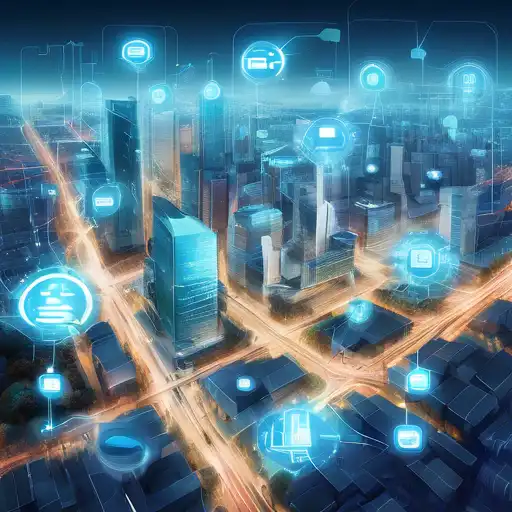Introduction to IoT in Smart Cities
The Internet of Things (IoT) is revolutionizing the way cities operate, making them smarter, more efficient, and more responsive to the needs of their inhabitants. By integrating IoT technologies, urban areas are transforming into smart cities, where data and connectivity improve the quality of life for everyone.
Key Components of IoT in Smart Cities
Smart cities rely on several key components of IoT to function effectively. These include:
- Sensors and Devices: These collect data from the environment, such as air quality levels, traffic patterns, and energy usage.
- Connectivity: High-speed networks enable the seamless transmission of data between devices and central management systems.
- Data Analytics: Advanced algorithms analyze the collected data to identify trends, predict issues, and optimize city operations.
- User Interfaces: Citizens and city officials interact with IoT systems through apps and dashboards, making information accessible and actionable.
Benefits of IoT in Smart Cities
The implementation of IoT in smart cities offers numerous benefits, including:
- Improved Public Safety: IoT devices can monitor crime hotspots and alert authorities to potential dangers in real-time.
- Enhanced Transportation: Smart traffic lights and parking systems reduce congestion and improve commute times.
- Environmental Sustainability: IoT helps in monitoring and reducing pollution levels, leading to a healthier urban environment.
- Efficient Resource Management: Smart grids and water systems ensure optimal use of resources, reducing waste and saving costs.
Challenges and Solutions
Despite its advantages, the integration of IoT in smart cities faces several challenges:
- Privacy and Security: The vast amount of data collected raises concerns about privacy breaches and cyber attacks. Implementing robust encryption and data protection measures is crucial.
- High Implementation Costs: The initial setup of IoT infrastructure can be expensive. However, the long-term savings and benefits often justify the investment.
- Interoperability: Ensuring that different IoT devices and systems can work together seamlessly is essential for the success of smart cities.
Future Prospects
The future of IoT in smart cities is bright, with ongoing advancements in technology paving the way for even more innovative applications. From autonomous vehicles to AI-powered city management systems, the possibilities are endless. As cities continue to grow, IoT will play a pivotal role in making them more livable, sustainable, and efficient.
For more insights into how technology is shaping urban development, explore our articles on digital transformation and urban innovation.
